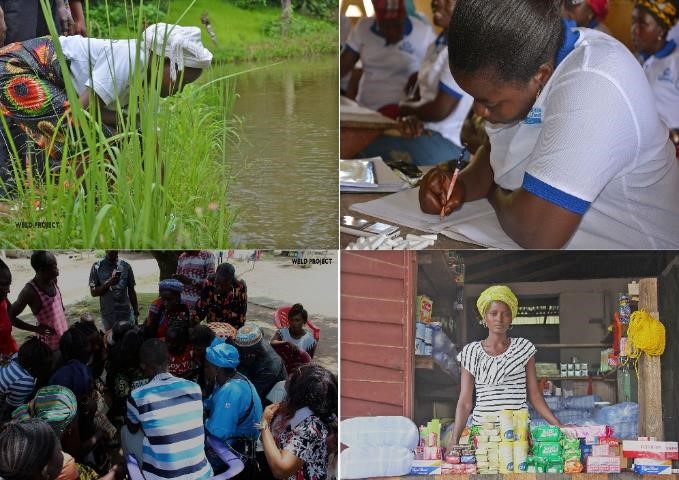VILLAGE AND LOAN SAVINGS ASSOCIATION IN SIERRA LEONE
- Post detail
- VILLAGE AND LOAN SAVINGS ASSOCIATION IN SIERRA LEONE

SIERRA LEONEAN WOMEN EMPOWERED THROUGH VILLAGE SAVINGS AND LOAN ASSOCIATIONS IN SIERRA LEONE
WOMENS ECONOMIC EMPOWERMENT IN SIERRA LEONE
27 Jun 2019 - 00:00:00
Women in Sierra Leone have long suffered political, social and economic marginalization. Traditions, culture, and customs have drastically hampered their participation in governance and socio-economic development. The disproportionate disenfranchisement of women, who compromise 50% of the population of the country, is attributed to poverty and lack of decision-making power. Most women entrepreneurs in Sierra Leone face a discriminatory business environment and disproportionately high and differentiated barriers relative to their male entrepreneurs. Therefore addressing and mitigating the issues affecting women’s economic empowerment is critical to Sierra Leone’s overall economic growth. USAID launched the Women Empowered for Leadership and Development (WELD) Project in September 2014, with an overall goal of increasing women’s social, political, and economic rights in Sierra Leone. WELD project was implemented by a consortium of four organizations led by World Vision International, alongside Action Aid International Sierra Leone (AAISL), Advocacy Movement Network (AMNeT) and Network Movement for Justice and Development (NMJD) across seven districts . The project targeted a total of 1,922,509 female from the national population of 7,075,641 . The project has improved rural women’s access to productive economic resources through savings and loan associations. There are 361 savings groups in WELD project. Lack of financial knowledge, understanding and awareness is a significant barrier to accessing formal financial services. Therefore introducing financial literacy training, enable financially excluded women to make the right choices and access appropriate financial services. WELD’s economic intervention is proving that it is possible for financial institutions to reach the most vulnerable groups, mostly women with formal financial services through financial literacy training and linkage. Financial literacy training and linkage to a finance institution includes women in the wider economy, enhancing their contribution to economic growth and sustainable livelihoods. 442 females members of 18 savings groups are participating in adult literacy classes. The objective of this training is to increase access to and control over knowledge, skills, and information by rural women. 73 females of the members who are participating in the literacy classes can read two letter words before the start of the sessions in July 2018. Monitoring done at the end of September revealed that 218 females can now read two letter words. Women participating in savings groups are now reporting increased confidence since they are no longer considered illiterate.
Images
Please sign in to flag this as inappropriate.
00
Khadijatu Sainta Barrie 5 Years Ago





